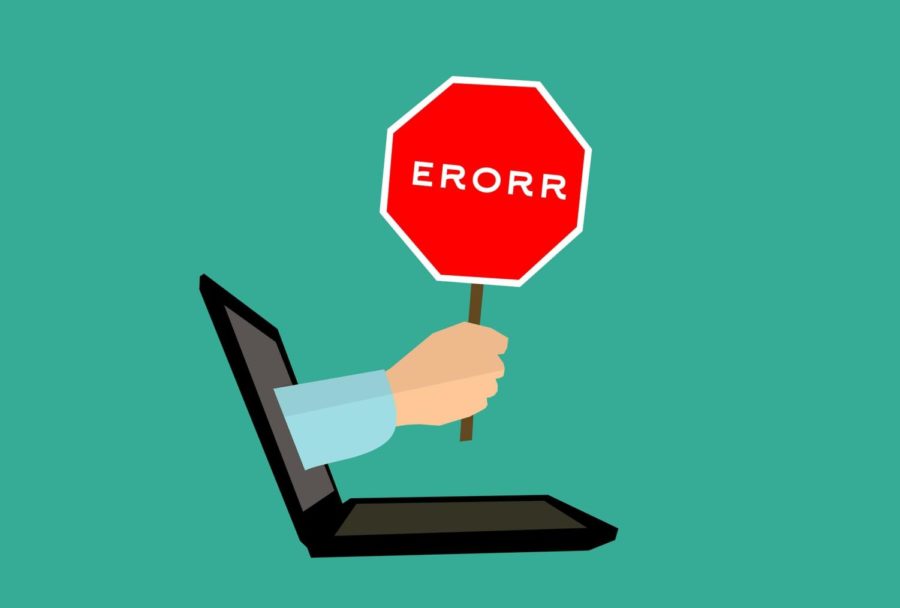Bahr: YouTube censorship control calls for debate
Computer Error Sign
August 26, 2019
It all started in 2017, when PragerU, a self-defined “non-profit education media company,” sued YouTube for censoring their videos. According to PragerU, YouTube had classified over 100 of their videos as inappropriate in 2017 (That number is now over the 200s). Some of these videos include “The Ten Commandments,” “Israel’s Legal Founding” and “Cops Are The Good Guys.” PragerU claims that these videos are not inappropriate at all, and YouTube is simply censoring them because they are conservative.
Another popular conservative YouTuber, Steven Crowder, was recently involved in a lawsuit with Carlos Maza, a Vox show host. At first, YouTube decided that Crowder’s remarks, however vulgar and offensive, were not considered hate speech and therefore required no censorship. However, after a barrage of backlash from the left, YouTube demonetized Crowder’s videos. YouTube then announced that it would be looking to tighten its grips on the content that is released on its platform as a whole.
Censoring hate speech isn’t inherently a bad thing. Speech that incites violence should be hidden from those who might take it to heart, but the problem lies with who gets to decide what hate speech is. On YouTube, Google gets to decide what counts as hate speech and censors it accordingly. And it’s clear from Crowder vs Maza that YouTube is willing to give in to backlash. So when it comes to hate speech on YouTube, it seems mob rule is the only rule.
However, Google has already admitted that it wishes to censor conservative media. Project Veritas released a video that showed a former Google employee secretly recording a meeting with Google executive, Jen Gennai. Gennai goes on to state that Google had altered its algorithms to bring “fairness” onto the platform, and then said, “The same people who voted for the current president … do not agree with our definition of fairness.” Gennai later admitted that these statements were real. The ex-google employee who leaked the video stated that conservative YouTubers were being censored to stop them from becoming popular.
This is a potentially very dangerous situation. If YouTube gets to decide what “hate speech” is, what is stopping it from censoring any opinion it doesn’t agree with? And at what point does this censorship begin to break the First Amendment? There is no way to know now, but I believe that in the near future, this will be a defining debate for all of America.

















